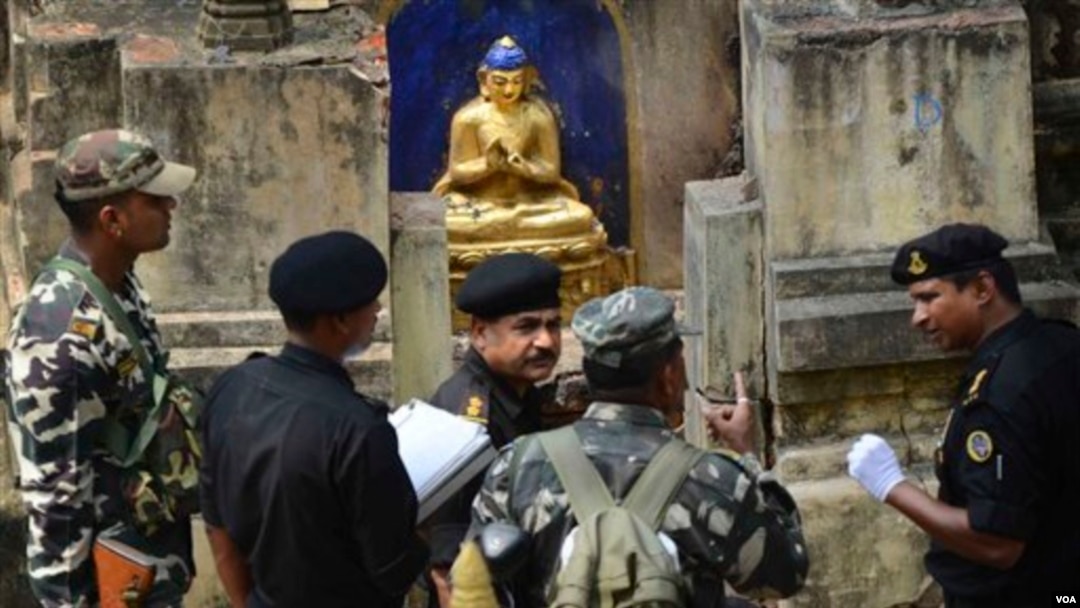Your browser doesn’t support HTML5
Security Reviewed in Dharamsala after Bodh Gaya Blast (In Tibetan)
The local police office in Dharamsala, India issued an order to ban cameras and mobile phones within the compound of Tsuk-lag-khang, the main temple in Dharamsala, after a series of nine low intensity bomb blasts at the place of pilgrimage and religious site of Bodh Gaya located in Bihar, India on Sunday July 7, 2013.
In an interview with Ngodup Dorjee, the secretary of the Department of Security, he said that the current security order will remain implemented until further notice comes from the local police. "The security personnel responsible for checking bags at the gates are increased and intensified. Athough it may not be a serious issue in Dharamsala, people should remain vigilant.” Dorjee added.
The Dalai Lama, Karmapa, and Sikyong Lobsang Sangay, the head of Tibetan administration in exile, expressed their grievances over the incident in Bodh Gaya.


